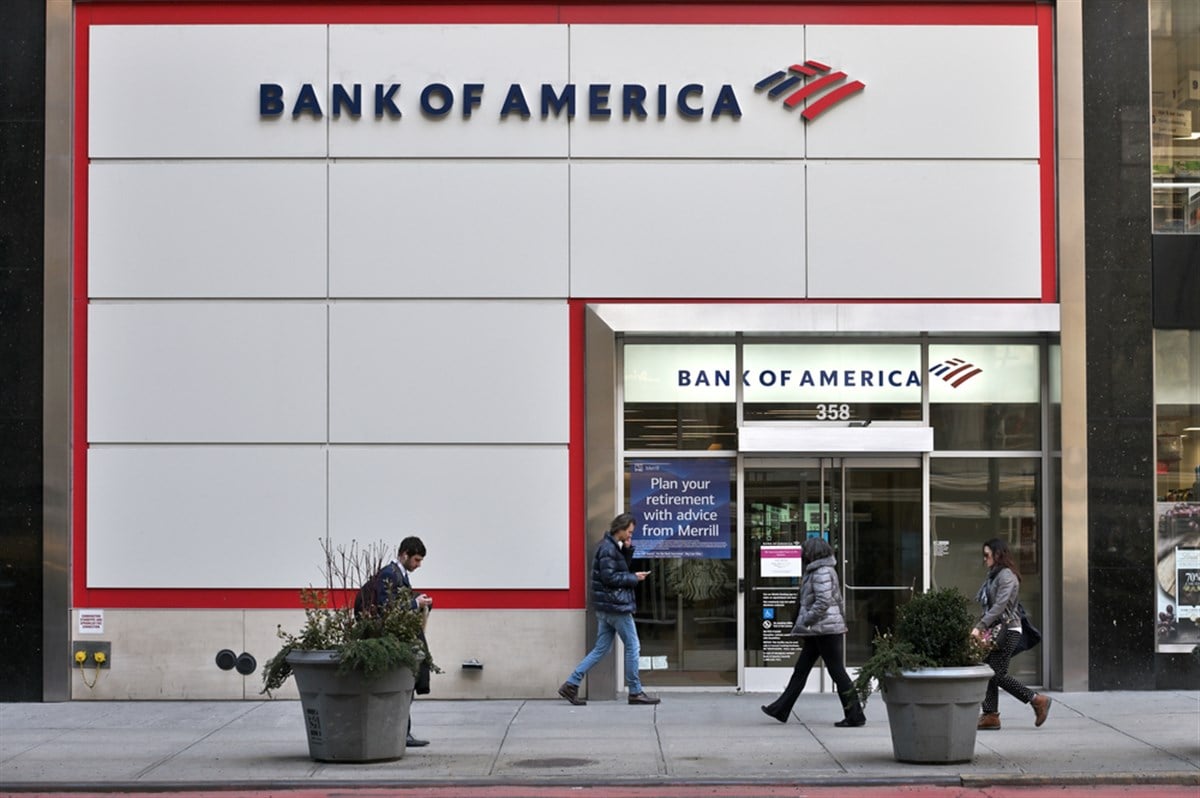
Financial stocks' earning season has kicked off, and the biggest names on the Street are showing the markets what has been happening under the hood.
Bank stocks are typically the first to lead an economic cycle, and for the United States, it looks like the cycle found its bottom last month. However, business is only one driver, as a strong consumer is equally necessary to push the economy in the right direction. This is where Bank of America Co.'s (NYSE: BAC) results come in handy.
BAC stock is down by 2%, but it's likely dragged down by the rest of the market, which is down 4% in the past month. Investors wondering where the stock market is headed care more about the trends disclosed in the bank's press release than the stock's reaction to the market. As such, retail investors could take Bank of America's results this week with a grain of salt. Fortunately, Citigroup Inc. (NYSE: C) also reported its earnings last week, giving investors a more defined trend in the industry.
Where Are Interest Rates Going?
Net interest income (NII) is the bread and butter for these commercial banks. As deposits increase at any bank, the bank can, in turn, lend these deposits to other customers in products like credit cards and mortgages. Of course, a high-interest rate environment —such as the one we are in today — is music to the lending department's ears.
This is the case for Bank of America, as the bank's net deposits rose by 1.2% from the past quarter to a total of $1.9 trillion.
The Federal Reserve (the Fed) is delaying its interest rate cuts, which are now priced in for September 2024 according to the CME's FedWatch tool, meaning the bank can expect another quarter of higher NII on its larger deposits. However, management stated that NII will likely hit a "low point" for the year in the second quarter of 2024.
After this bottoming, things are expected to return to normal, likely due to lower interest rates boosting the volume of credit cards and mortgages rather than the interest rate originating on those loans. That leaves investors questioning whether rates will be heading higher or lower in the coming months.
Well, it's a two-way bet for Bank of America. Investment banking activity delivered a 35% fee increase, driven by equity and debt underwriting. Because companies are engaging in dealmaking on bullish expectations and a positive financing outlook, this might mean that we are approaching the end of a period of high interest rates.
The way things are looking, the bank is looking to squeeze one last run at high NII, then focus on volume for low interest rates.
Bank of America's Bet on Consumers
Just like Citigroup, which lets consumers with FICO scores below 660 open more accounts, Bank of America is also showing confidence in the U.S. consumer. Despite seeing net charge-offs rise to $1.5 billion, up from only $1.2 billion in the past quarter and $8.7 million a year ago, the bank opened more than one million credit card accounts in the quarter.
However, Bank of America changed its strategy on FICO scores, seeing a net increase across all lending products. Consumer FICO scores for credit cards, car loans, and mortgages all increased by an average of three points. Of course, this is a matter of risk management, as delinquency rates rose to five-year highs.
Citigroup's loan portfolios showed a similar trend with increasing delinquencies and charge-offs. As the two largest commercial banks give the Fed another worrying point, the bailout (through lower interest rates) could be imminent.
Stock Market Insight
Sales and trading brought in the highest quarterly revenue in over a decade, representing eight consecutive quarters of revenue growth. The two main products for this department are equities (stocks) and fixed income (bonds). Bond trading revenue was $3.3 billion for the quarter, while stock trading revenue was only $1.9 billion.
Knowing that bond prices move opposite their yields (interest rates), traders may have been loading up on bonds before the cuts came. Investors can understand this trend by seeing how the iShares 20+ Year Treasury Bond ETF (NASDAQ: TLT) recently reached a 12-year low price. If and when the Fed cuts interest rates, Bank of America's bond holdings, which increased by $40 million during the quarter, could likely boost the stock's book value per share.
All in all, it was an excellent quarter for the bank. Even more importantly, investors now know that interest rate cuts could be around the corner to help the inflation-choked consumer.




